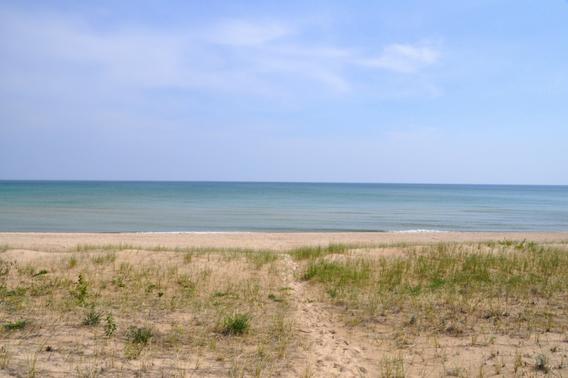
Climate driven changes in fish recruitment, survival, and abundance complicate efforts to manage fisheries.
Challenge: Varied effects among species and lakes are a challenge.
Principal Investigator(s):
- Jordan S Read (Water - Integrated Information Dissemination Division)
- Gretchen Hansen (University of Minnesota)
Cooperator/Partner(s):
- Erin Schliep (University of Missouri)
- Tyler Wagner (Pennsylvania Cooperative Fish and Wildlife Research Unit)
- Zach Feiner (Wisconsin DNR)
- Catherine Hein (Wisconsin DNR)
- Peter Jacobson (Minnesota DNR)
- Joe Nohner (Midwest Glacial Lakes Partnership; Michigan DNR)
- Samantha K Oliver (USGS)
- Kevin Wehrly (Michigan DNR)
- Abigail J Lynch (National Climate Adaptation Science Center)
Many Midwestern lakes are experiencing warming water temperatures as a result of climate change. In general, this change is causing coldwater fish species such as cisco and coolwater species such as walleye to decline. Meanwhile, warmer water species such as largemouth and smallmouth bass are increasing as temperatures warm. However, some fish populations are more vulnerable to these changes than others. This divergence could be the result of interactions between climate and habitat conditions, or as a result of interactions among fish species. For example, walleye responses to warming temperatures could vary depending on the abundance of largemouth bass.
The goal of this project is to quantify the responses of fish to climate change in Midwestern lakes and to identify the local factors that can affect those responses. Researchers will focus on the responses of multiple fish species (walleye, largemouth bass, smallmouth bass, northern pike, and yellow perch) in the Midwest Glacial Lake Partnership region, which contains approximately 36,000 lakes across North and South Dakota, Minnesota, Iowa, Wisconsin, Illinois, Indiana, and Michigan. Researchers will also develop water temperature profiles for lakes in this region under current and future climates, and will identify priority lakes for implementing habitat protection and restoration activities.
By generating lake-level predictions for multiple species in tens of thousands of lakes across multiple states, the results of this project will be directly relevant for prioritizing climate adaptation management decisions at lake, watershed, county, state, and regional scales. The results of this project will be immediately useful and beneficial to the Midwest Glacial Lake Partnership, a federal fish habitat partnership funded by the U.S. Fish and Wildlife Service, as well as other resource managers across the region. In particular, this information can help partners identify vulnerable lakes, prioritize habitat restoration efforts, and inform fish stocking decisions.
This project builds on previous Northeast CASC-funded research to develop a framework for modeling lake temperatures in the Midwest and a subsequent project that increased the accuracy of modeling results for high-priority lakes.
Read more from the CASC Project Explorer.
